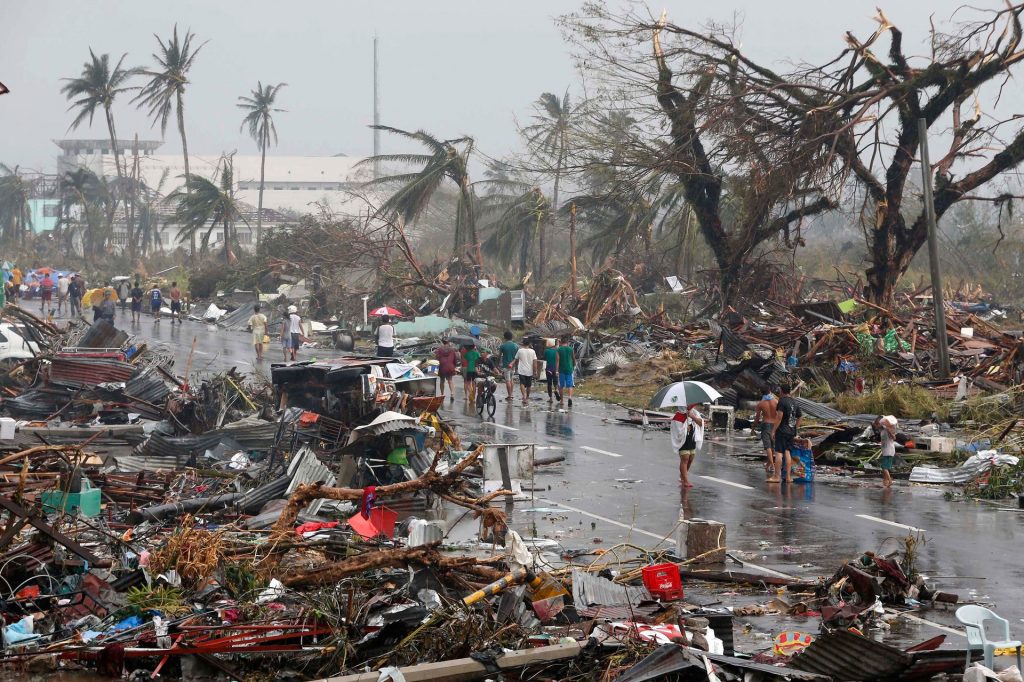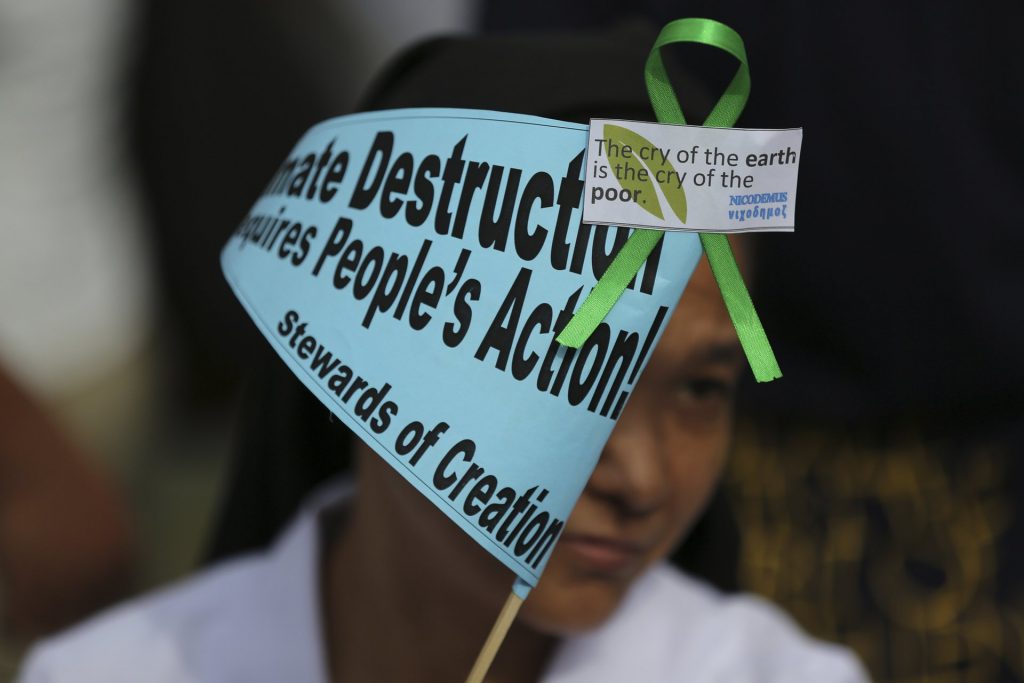
Photograph: Erik de Castro / Reuters/REUTERS
The world’s largest oil, coal, cement and mining companies have been given 45 days to respond to a complaint that their greenhouse gas emissions have violated the human rights of millions of people living in the Phillippines.
In a potential landmark legal case, the Commission on Human Rights of the Philippines (CHR), a constitutional body with the power to investigate human rights violations, has sent 47 “carbon majors” including Shell, BP, Chevron, BHP Billiton and Anglo American, a 60-page document accusing them of breaching people’s fundamental rights to “life, food, water, sanitation, adequate housing, and to self determination”.
The move is the first step in what is expected to be an official investigation of the companies by the CHR, and the first of its kind in the world to be launched by a government body.
The complaint argues that the 47 companies should be held accountable for the effects of their greenhouse gas emissions in the Philippines and demands that they explain how human rights violations resulting from climate change will be “eliminated, remedied and prevented”.
It calls for an official investigation into the human rights implications of climate change and ocean acidification and whether the investor-owned “carbon majors” are in breach of their responsibilities.
The Philippines, an archipelago of more than 7,000 islands, is one of the most vulnerable countries in the world to climate change.
Four of its most devastating super-cyclones have occurred in the last decade, and the country has recorded increasingly severe floods and heatwaves that have been linked to man-made global warming.
Typhoon Haiyan, known locally as Yolanda, was one of the most powerful storms ever recorded, killing more than 6,000 people and displacing 650,000 others in 2013.
The legal complaint has been brought by typhoon survivors and non-governmental organisations and is supported by more than 31,000 Filipinos.
“We demand justice. Climate change has taken our homes and our loved ones. These powerful corporations must be called to account for the impact of their business activities,” said Elma Reyes from Alabat Island in Quezon, who survived super typhoon Rammasun in 2008 and is part of the group submitting the complaint to the CHR.
The full legal investigation is now expected to start in October after the 47 companies have responded. Although all 47 will be ordered to attend public hearings, the CHR can only force those 10 with offices in the Philippines to appear.
These include Chevron, ExxonMobil, BP, Royal Dutch Shell, Total, BHP Billiton, Anglo American, Lafarge, Holcim, and Taiheiyo Cement Corporation. The CHR has the power to seek the assistance of the UN to encourage any which do not attend to co-operate.
“The commission’s actions are unprecedented. For the first time, a national human rights body is officially taking steps to address the impacts of climate change on human rights and the responsibility of private actors,” said Zelda Soriano, legal and political adviser for Greenpeace Southeast Asia, one of the groups which has brought the complaint to the CHR.
“This is an important building block in establishing the moral and legal ‘precedent’ that big polluters can be held responsible for current and threatened human rights infringements resulting from fossil fuel products. From the Netherlands to the US, people are using legal systems to hold their governments to account and demand climate action,” she said.
The list of the 47 “carbon majors” being asked to respond to the CHR is based on research by Richard Heede, director of the Climate Accountability Institute in Colorado. In 2013 he calculated that just 90 global companies had produced nearly two-thirds of the greenhouse gas emissions generated since the start of the industrial revolution.

Photograph: Aaron Favila/AP
Together these companies emitted around 315 gigatons of CO2 equivalent into the atmosphere, or nearly 22% of estimated global industry greenhouse gas emissions from 2010 to 2013, said Heede.
“We pray that the CHR heed the demand to recommend to policymakers and legislators to develop and adopt effective accountability mechanisms that victims of climate change can easily access,” said Father Edwin Gariguez, executive secretary of Caritas Philippines and a recipient of the Goldman environmental prize.
The CHR is not a court and would have no power to force companies to reduce emissions or fine them. However, it can make recommendations to government and would add to the worldwide pressure to persuade shareholders to divest from heavy carbon emitters.
The investigation is the latest in a growing tide of climate liability cases being brought against governments and corporations. In June, the Netherlands’ high court ruled on the world’s first climate liability suit, ordering the Dutch government to take stronger action against climate change to better protect its citizens.
However, several court cases launched in the US urging the US government to take more action against climate change have been dismissed.

